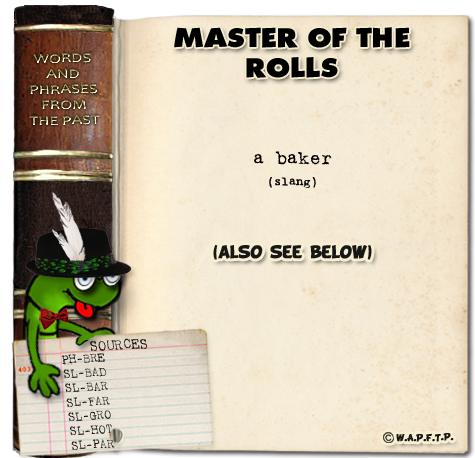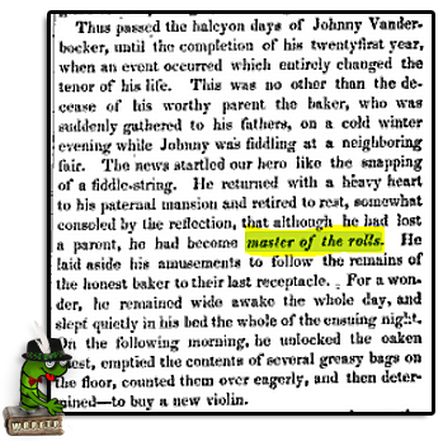|
Note: in England and Wales, the Master of the Rolls is the judge who presides over the Civil Division of the Court of Appeal and Head of Civil Justice. The position dates from at least 1286, possibly even earlier. From Wikipedia: The Master of the Rolls was initially a clerk responsible for keeping the "Rolls", or records, of the Court of Chancery, and was known as the Keeper of the Rolls of Chancery. The Keeper was the most senior of the dozen Chancery clerks, and as such occasionally acted as keeper of the Great Seal of the Realm. The post evolved into a judicial one as the Court of Chancery did; the first reference to judicial duties dates from 1520. With the Judicature Act 1873, which merged the Court of Chancery with the other major courts, the Master of the Rolls joined the Chancery Division of the High Court and the Court of Appeal, but left the Chancery Division by the terms of the Judicature Act 1881. He retained his clerical functions as the nominal head of the Public Record Office until the Public Records Act 1958 transferred responsibility for it to the Lord Chancellor. The Master of the Rolls was also previously responsible for registering solicitors, the officers of the Senior Courts. a punning allusion to the above From: The Bouquet: Flowers of Polite Literature
Edited by Melzar Gardner Volume I, Number 6 Hartford, Conn., Saturday, August 27, 1831 Popular Tales. The Village Musician, By James Mall
0 Comments
Leave a Reply. |
Archives
September 2021
|



